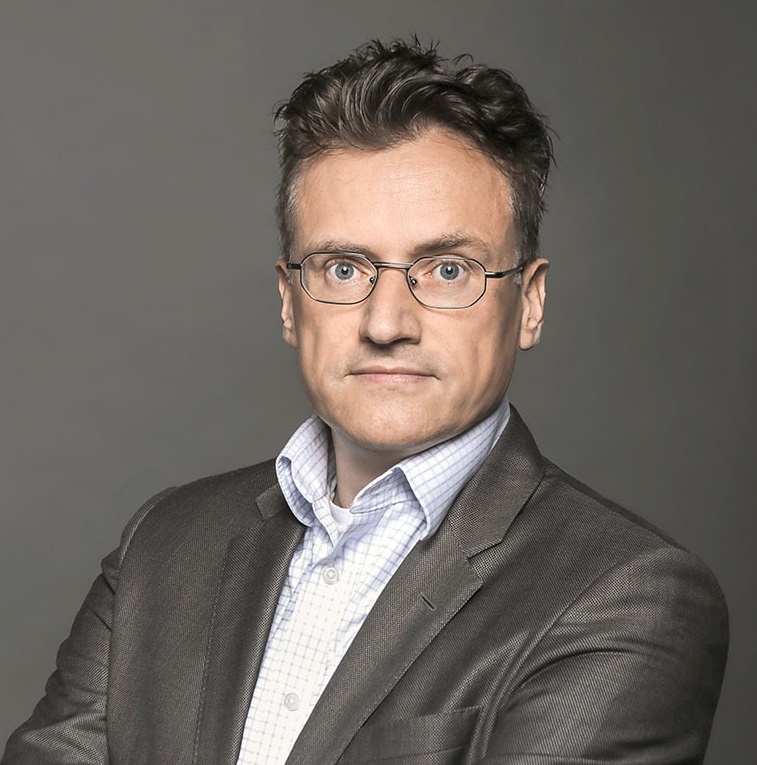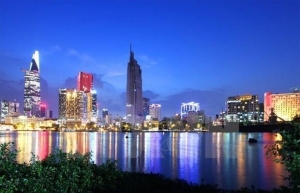Vietnam rising as a global financial hub: why not?
The economic climate in Vietnam is characterised by great optimism. However, the biggest threat to Vietnam is likely to come from external downside risks. These include the Ukraine war, global inflation and debt policy, rising global interventionism, rising interest rates, and disrupted supply chains.
 |
| Andreas Stoffers-Country director Friedrich Naumann Foundation Vietnam |
In terms of economic policy, Vietnam continues to rely on the same strategy that has led to the country’s rise in the past since it moved away from a planned economy decades ago. These include a clear commitment to free trade, a healthy, manageable national budget, and an investor-friendly economic climate.
However, it is by no means given that every economically rising country will automatically be home to an international financial centre (IFC). Many industrialised countries, such as South Korea or Italy, have excellent, internationally active banks and financial institutions. But, as IFCs, their big cities do not have the same reputation as New York, London, Frankfurt, or Singapore. It is therefore not mandatory for an industrialised country, which Vietnam wants to become, to have such a thing.
The competition is fierce and creating the conditions is a Herculean task, especially for a still developing country like Vietnam. Nevertheless, there is a great attraction in offering the financial industry a new haven alongside other industries, and Vietnam has some advantages.
First and foremost is the professionalisation of Vietnam’s banking system. Within the long process preparing for the creation of a financial hub, the Vietnamese banking industry will face great pressure to reform. It will require a concerted effort to increase professionalism, clean up the market, improve the equity and bond markets, and introduce a reliable rating system. This will massively increase the competitiveness of Vietnamese banks.
Spillover effects for other industries is the second factor. The creation of a financial hub in Vietnam will have positive effects in many areas of industry. Certainly, physical proximity to financial institutions is no longer necessary in this age of digitalisation. Nevertheless, it cannot be denied that a professionalised banking system consisting of international and national credit institutions also improves conditions for local investors. This is proven by the many other financial centres around the world, in whose environment other industrial and commercial enterprises also thrive.
Thirdly, Vietnam has already proven to be an interesting destination for foreign investment. Moreover, the domestic market is also developing splendidly. The presence of a financial hub would add another fascinating facet to Vietnam’s international reputation. The best example of this is Dubai, which has now acquired a superb reputation as a hub.
A few years ago, Dubai was known for its desert, sun, and an excellent duty-free shop at the airport. Since then, Dubai’s positioning as a financial hub has made a huge contribution to its overhaul. Many companies now have their headquarters in this small sultanate on the Persian Gulf. The Dubai IFC is now the leading financial centre for the Middle East, Africa, and South Asia, which includes 72 countries with a population of about three billion people and a nominal GDP of $8 trillion.
Today, Dubai’s IFC offers one of the most comprehensive fintech and venture capital environments in the region, including cost-effective licensing solutions, fit-for-purpose regulation, innovative acceleration programmes, and funding for growth-stage startups. In my opinion, Dubai could serve – to a certain extent – as a role model.
Having worked as a banker in Germany and Vietnam for almost two decades, I can recognise where opportunities in the financial industry arise. And in my opinion, these can be found in Vietnam. In my discussions with University of Economic Ho Chi Minh City, which I consider as one of the leading universities in the country, I have already discussed various ideas. Personally, I think the city has a particularly promising future as a location for a financial hub, as the city and its surroundings are already home to many international companies, including banks and fintech groups.
In addition, the city offers expatriates and Vietnamese experts a liveable living and working environment. If public transport is further expanded, it would also be conceivable to develop a financial hub in cooperation with one of the neighbouring provinces, such as the southern province of Binh Duong. Besides virtual, digital offerings, a brick-and-mortar business is still required.
An essential prerequisite is that decisions are made by policymakers and the necessary conditions are created. The creation of a financial hub is a mammoth project and it will definitely not be done overnight, but it is worthwhile for Vietnam to work on it. I consider this project to be one of the most important and forward-looking projects in Vietnam. The nation is at the centre of one of the most prosperous regions in the world. Now is the time for an Asia-Pacific Century, and that includes a future financial centre in Ho Chi Minh City.
 | HCM City aims to become international financial hub The People’s Committee of Ho Chi Minh City has asked for the Government’s support of its scheme to make the city a regional and international financial hub. |
 | Vietnam International Arbitration Centre pledges support to FDI firms Vietnam should improve its legal framework to maintain the attractiveness of the domestic investment environment to foreign firms, Vu Tien Loc, President of the Vietnam International Arbitration Centre (VIAC) has said. |
What the stars mean:
★ Poor ★ ★ Promising ★★★ Good ★★★★ Very good ★★★★★ Exceptional
Related Contents
Latest News
More News
- Kurz Vietnam expands Gia Lai factory (February 27, 2026 | 16:37)
- SK Innovation-led consortium wins $2.3 billion LNG project in Nghe An (February 25, 2026 | 07:56)
- THACO opens $70 million manufacturing complex in Danang (February 25, 2026 | 07:54)
- Phu Quoc International Airport expansion approved to meet rising demand (February 24, 2026 | 10:00)
- Bac Giang International Logistics Centre faces land clearance barrier (February 24, 2026 | 08:00)
- Bright prospects abound in European investment (February 19, 2026 | 20:27)
- Internal strengths attest to commitment to progress (February 19, 2026 | 20:13)
- Vietnam, New Zealand seek level-up in ties (February 19, 2026 | 18:06)
- Untapped potential in relations with Indonesia (February 19, 2026 | 17:56)
- German strengths match Vietnamese aspirations (February 19, 2026 | 17:40)

 Tag:
Tag:


















 Mobile Version
Mobile Version